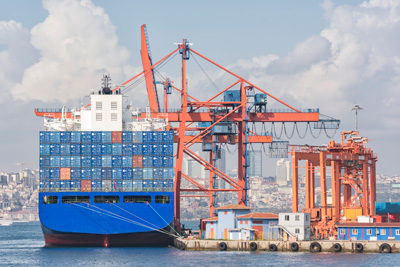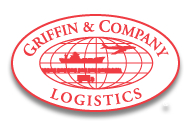 IMPORTING
IMPORTINGThe standard document set includes a Commercial Invoice and Packing List. Additional documents may be required, based on factors such as the country of destination or commodity being shipped.
A Schedule B Number is a 10 digit identification number used to identify commodities for export. Need help classifying your commodity? Visit: https://uscensus.prod.3ceonline.com/
Incoterms are a series of pre-defined commercial terms published by the International Chamber of Commerce (ICC) relating to international commercial law. They are widely used in international commercial transactions or procurement processes and their use is encouraged by trade councils, courts and international lawyers.
An ATA Carnet is an international Customs document which allows the temporary importation of commercial samples, professional equipment, or exhibit materials. It is valid for 1 year and is used to gain relief from some customs, duty, and taxes that are levied against imported items.
Our focus is on the shipping of commercial goods for businesses. Unfortunately, we do not handle personal effects shipments.
In most cases, Griffin & Company Logistics can offer all risk, door to door insurance at an additional cost that is based on the cargo type and value. Please ask us for more details.
Customs brokers are licensed and regulated experts that are empowered by U.S. Customs and Border Protection (CBP) to assist importers with meeting government requirements governing imports. They have expertise in entry procedures, admissibility requirements, classification and other areas associated with the import process.
CBP’s website states “There is no legal requirement for you to hire a Customs Broker to clear your goods.” However, many importers opt to do so for the convenience. Customs Brokers are licensed by U.S. Customs and Border Protection to conduct CBP business on behalf of importers. They take the burden of filling out paperwork and obtaining a CBP bond off the importer’s hands. The importer is always ultimately responsible for knowing CBP requirements.
Document requirements for a Customs entry vary but, in general and at a minimum, an entry is to be presented to Customs containing a commercial invoice, packing list, bill of lading or air waybill and immediate transportation (IT) information if it did not arrive in port direct. Other Participating Government Agency (PGA) information (for example, Food and Drug Administration, Fish & Wildlife etc.), forms or licenses may also be required depending on the commodity.
A Customs power of attorney is a written authorization to a grantee to perform certain acts relating to the filing of an entry. A Customs Broker is required, by Federal regulations, to have a properly executed one on hand before transacting Customs business on behalf of an Importer.
Is a type of bond that is required for almost all formal CBP entries valued at $2,500 or more, and may be required for some informal entries valued under $2,500. Bonds guarantee that the government will collect their duty since the goods are most often released to the consignee prior to duty payment. Surety bonds are also used for the activities of CBP warehouse proprietors, carriers, cartage operators, masters of vessels, drawback filers, etc…
It is a number that is used by Customs in the classification of merchandise. It determines the applicable tariff rate and statistical categories for all merchandise imported into the United States and is based on an internationally agreed upon system of nomenclature.
Duty to CBP is to be paid within 10 business days after release, however, customarily it is paid 8 business days from release.
Yes, a value needs to be declared on all shipments. If transaction value cannot be used the importer should base their valuation on the value of identical goods before considering another valuation method.
It is a Customs and Border Protection (CBP) regulation that requires importers and vessel operating carriers to provide additional advance trade data to CBP for non-bulk cargo shipments arriving into the United States by ocean vessel. For containerized freight this data is required to be transmitted to CBP 24 hours prior to vessel loading overseas. Failure to file timely may result in a $5,000.00 penalty to the importer of record.
Contact a licensed Customs Broker for assistance or apply for one from CBP direct. In order to apply for one directly from CBP go to https://erulings.cbp.gov/home.
Incoterms® are internationally recognized terms of agreement. They govern the buying and selling goods around the world. When negotiating an international purchase the seller and buyer should agree to an Incoterm® to govern the transaction. The term agreed to should appear on the commercial invoice. They determine who is responsible for the origin fees, transportation, insurance and when the title of the goods changes hands. Incoterms® are generally accepted rules for international trade drawn up by the International Chamber of Commerce. They are not law nor binding. When buying goods, we recommend E or F Terms. When selling goods, we recommend C Terms.
